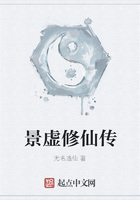The authors, in describing reality, began to indicate moral approval and condemnation, and the critics began to pass from the criticism of the representations to the criticism of the realities represented. A poem or a tale was often used as a peg on which to hang a moral lecture, and the fictitious characters were soundly rated for their sins of omission and commission. Much was said about the defence of the oppressed, female emancipation, honour, and humanitarianism; and ridicule was unsparingly launched against all forms of ignorance, apathy, and the spirit of routine. The ordinary refrain was that the public ought now to discard what was formerly regarded as poetical and sublime, and to occupy itself with practical concerns--with the real wants of social life.
The literary movement was thus becoming a movement in favour of social and political reforms when it was suddenly arrested by political events in the West. The February Revolution in Paris, and the political fermentation which appeared during 1848-49 in almost every country of Europe, alarmed the Emperor Nicholas and his counsellors. A Russian army was sent into Austria to suppress the Hungarian insurrection and save the Hapsburg dynasty, and the most stringent measures were taken to prevent disorders at home.
One of the first precautions for the preservation of domestic tranquillity was to muzzle the Press more firmly than before, and to silence the aspirations towards reform and progress; thenceforth nothing could be printed which was not in strict accordance with the ultra-patriotic theory of Russian history, as expressed by a leading official personage: "The past has been admirable, the present is more than magnificent, and the future will surpass all that the human imagination can conceive!" The alarm caused by the revolutionary disorders spread to the non-official world, and gave rise to much patriotic self-congratulation. "The nations of the West," it was said, "envy us, and if they knew us better--if they could see how happy and prosperous we are--they would envy us still more. We ought not, however, to withdraw from Europe our solicitude; its hostility should not deprive us of our high mission of saving order and restoring rest to the nations; we ought to teach them to obey authority as we do. It is for us to introduce the saving principle of order into a world that has fallen a prey to anarchy. Russia ought not to abandon that mission which has been entrusted to her by the heavenly and by the earthly Tsar."*
These words were written by Tchaadaef, who, a few years before, had vigorously attacked the Slavophils for enouncing similar views.
Men who saw in the significant political eruption of 1848 nothing but an outburst of meaningless, aimless anarchy, and who believed that their country was destined to restore order throughout the civilised world, had of course little time or inclination to think of putting their own house in order. No one now spoke of the necessity of social reorganisation: the recently awakened aspirations and expectations seemed to be completely forgotten.
The critics returned to their old theory that art and literature should be cultivated for their own sake and not used as a vehicle for the propagation of ideas foreign to their nature. It seemed, in short, as if all the prolific ideas which had for a time occupied the public attention had been merely "writ in water," and had now disappeared without leaving a trace behind them.
In reality the new movement was destined to reappear very soon with tenfold force; but the account of its reappearance and development belongs to a future chapter. Meanwhile I may formulate the general conclusion to be drawn from the foregoing pages. Ever since the time of Peter the Great there has been such a close connection between Russia and Western Europe that every intellectual movement which has appeared in France and Germany has been reflected--albeit in an exaggerated, distorted form--in the educated society of St.
Petersburg and Moscow. Thus the window which Peter opened in order to enable his subjects to look into Europe has well served its purpose.















